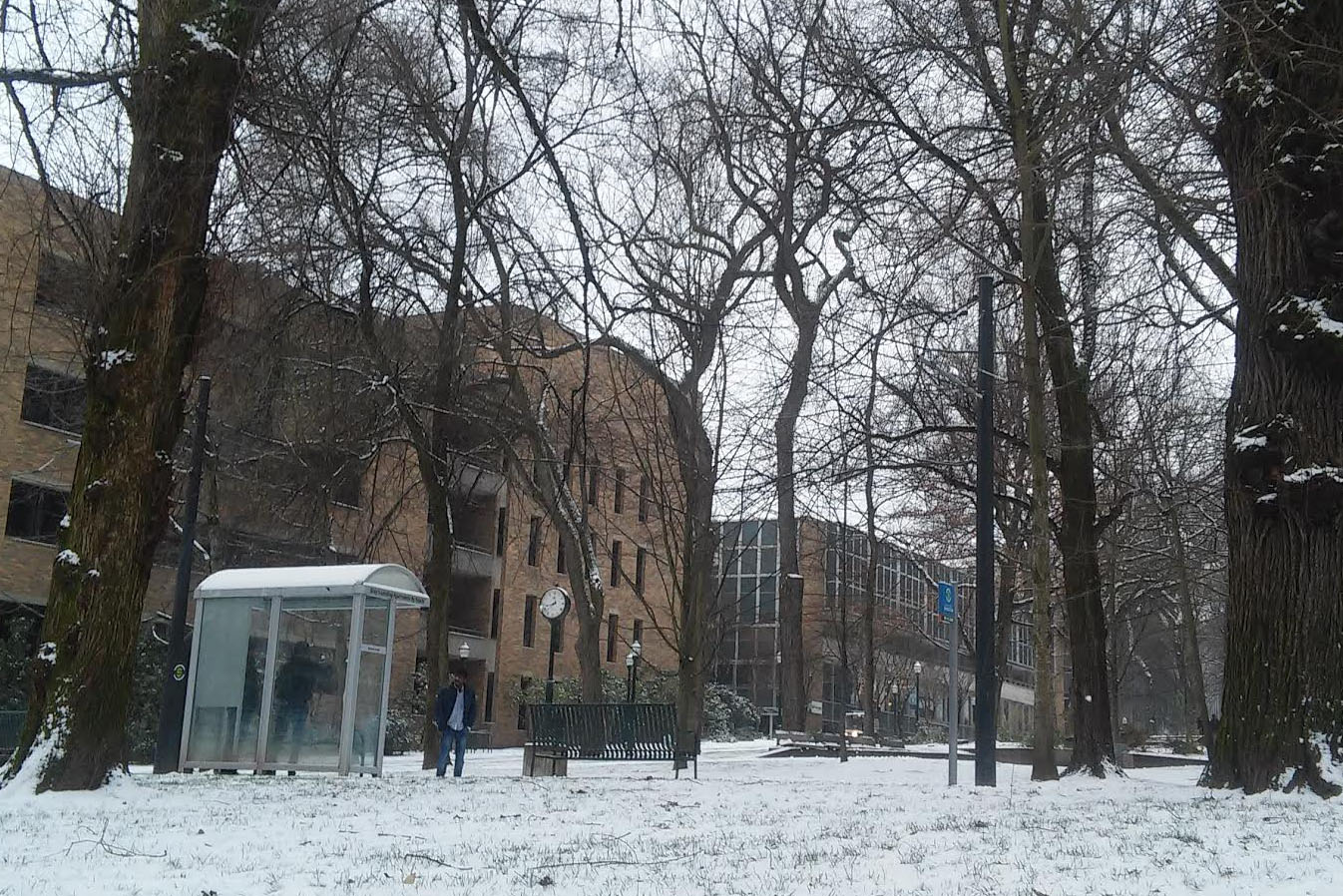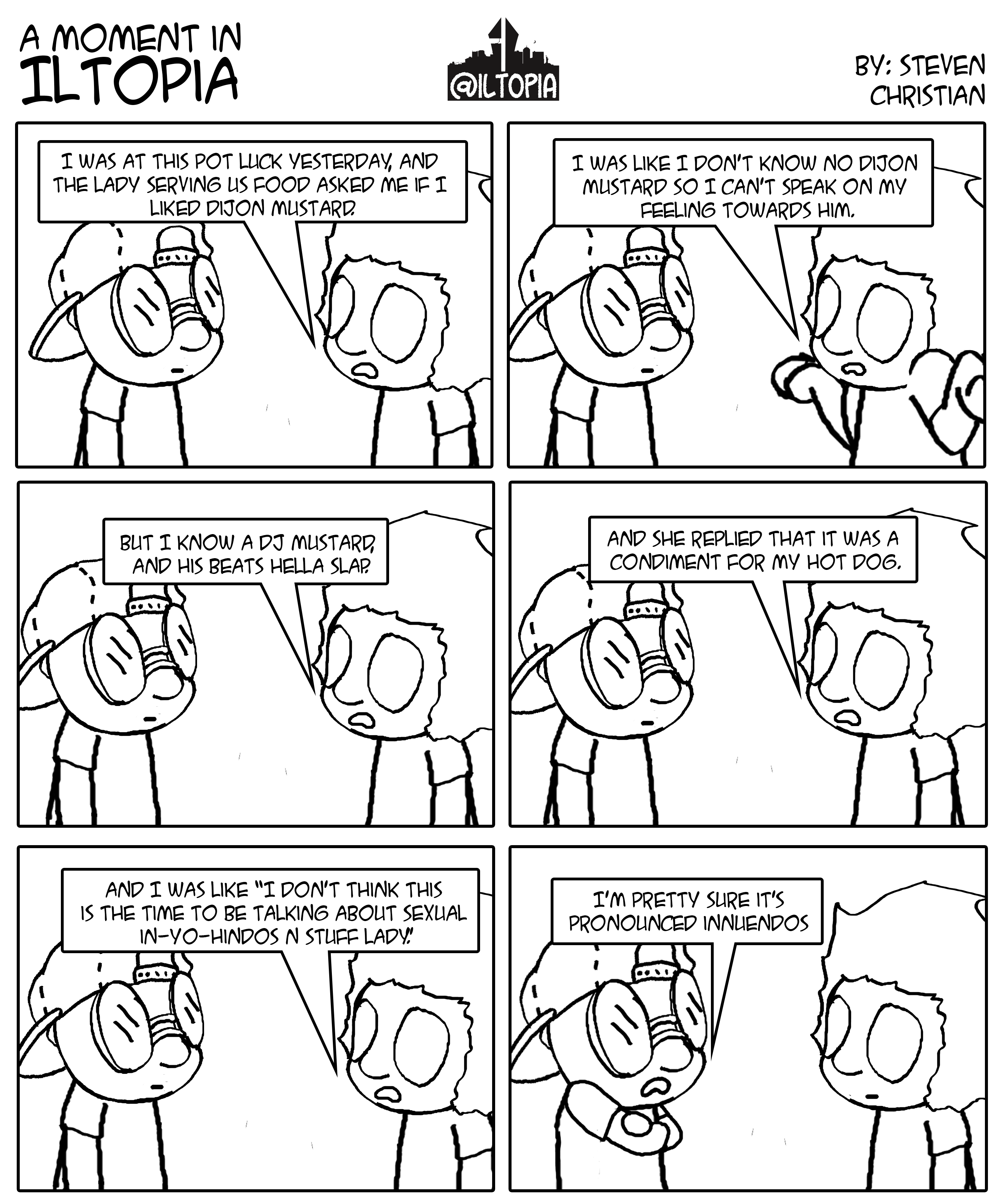Enough time has passed since the inclement weather earlier this month that we can look back and reflect on what exactly happened.
The city of Portland was taken by surprise by freezing rain, which managed to coat the entire city, its streets and bike lanes, its MAX tracks, and all the surrounding sidewalks and bridges. Unlike normal rain, which tends to flow conveniently out of the way, this snow simply accumulated, growing ever larger and more threatening.
The weather caused shutdowns throughout the city, including the Portland State University campus. The first day of classes were postponed until 10:00 a.m., then cancelled altogether. What was happening? It seemed as if the snow were winning. Were we doomed? Was this Portland’s way of saying to us, “You’re on your own guys, I’m outta here?”
That day, I sat in my living room with a cup of coffee watching as the visible world vanished beneath snow like some sort of quaint Christmas card or a film about peasants in the Russian countryside. Hushed rumors circulated about a semi-mythical Portland snow plow that would save us from winter.
Such things do exist. They are plentiful in upstate New York and the Midwest where entire regions of the country turn into Siberia for three months of the year.
Was it real? If so, where was it? Could it have been out there right at that very moment, liberating entire city blocks and families from the grisly fate of being snowed in, forced to subsist on half-frozen canned beans and, eventually, the weak and infirm?
I have heard the stories about the Donner Party, the infamous group of 19th century pioneers who set out for California and became snowbound, having to resort to cannibalism to survive. I know what snow and ice are capable of.
All throughout that day, I listened for the distant rumbling of diesel engines and the scraping of corrugated metal against the asphalt. Anything to break the ominous silence of what felt like an entire city abandoned.
If we were given up to the snow, then what? Would I be able to defend myself in the event of a Yeti attack? They are known to live in snowy places. Portland, at that moment, was a snowy place. They would probably begin to migrate south from Canada before long. We would be trapped.
How could the city of Portland allow this to happen? Was I expected to merely leave the house when the world we knew had been turned into a barren, frigid tundra? Was I supposed to subsist for the next several days on the frozen corpse of our local mail carrier?
To trudge over an entire inch of snow? I do not own snowshoes. If I had fallen I may not have been found until spring, at which point I would have been long dead and probably encased in some sort of block of ice (I saw Encino Man, I know how this works).
I believe we have a civic responsibility to bring this to the city’s attention so that “The Great Portland Snow” is never again repeated in our lifetimes. This will require dedication and hard work. I propose the following solutions:
1. A snow plow, one with a really big shovel and maybe that ice-melting salt. Maybe two of them.
2. Some sort of evacuation plan in the event of a Yeti attack. It never hurts to be prepared.
3. Some sort of lottery allowing us to determine who shall be eaten in sequential order if it comes to that. This will help quell the civil unrest that state-sanctioned cannibalism can potentially cause.
With these provisions in place, I believe Portland will be more prepared in the years to come in the event of another Great Snow on the scale of the 2016 fiasco. We will be ready for our next inch of snow. We will be waiting.





